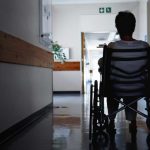Commitment to working on improving police accountability is strong at Law School conference
There was unanimous concern about the overall issue. There was unanimous willingness to work together. There was open and substantial conversation. But it will take time to see what will actually happen when it comes to progress on how to police communities and how to achieve good accountability when things related to police go bad.
That summarizes a two-hour conference on policing and accountability hosted by the Marquette Law School and the Marquette Forum, a university-wide set of efforts to address major issues. Participants included major figures involved in controversies over the subject and in the aftermath of several police shootings of black men. The conference was posted on the Law School’s web site on March 10, 2021.
“Ideologically, we want to live in a city where we all feel safe, where we feel heard, where we feel protected,” said Amanda Avalos, a new member of Milwaukee’s Fire and Police Commission. “And people’s ideas of how we get there are different.”

 Numerous social commentators have noted how the pandemic has hit the least powerful and prosperous parts of the population the hardest. Infections, hospitalizations, and deaths have been disproportionally high among the poor, people of color, recent immigrants, Native Americans, and the elderly.
Numerous social commentators have noted how the pandemic has hit the least powerful and prosperous parts of the population the hardest. Infections, hospitalizations, and deaths have been disproportionally high among the poor, people of color, recent immigrants, Native Americans, and the elderly.